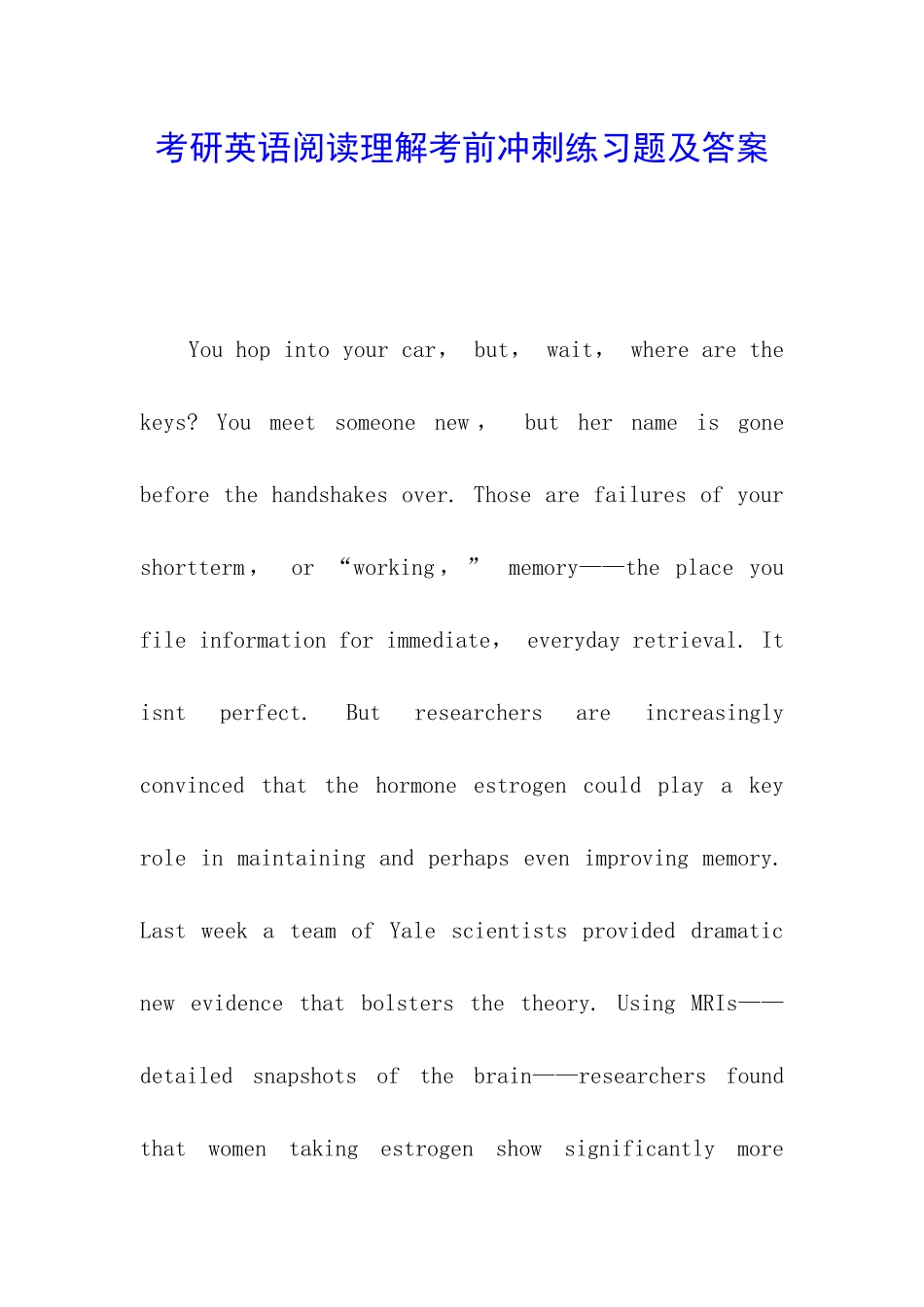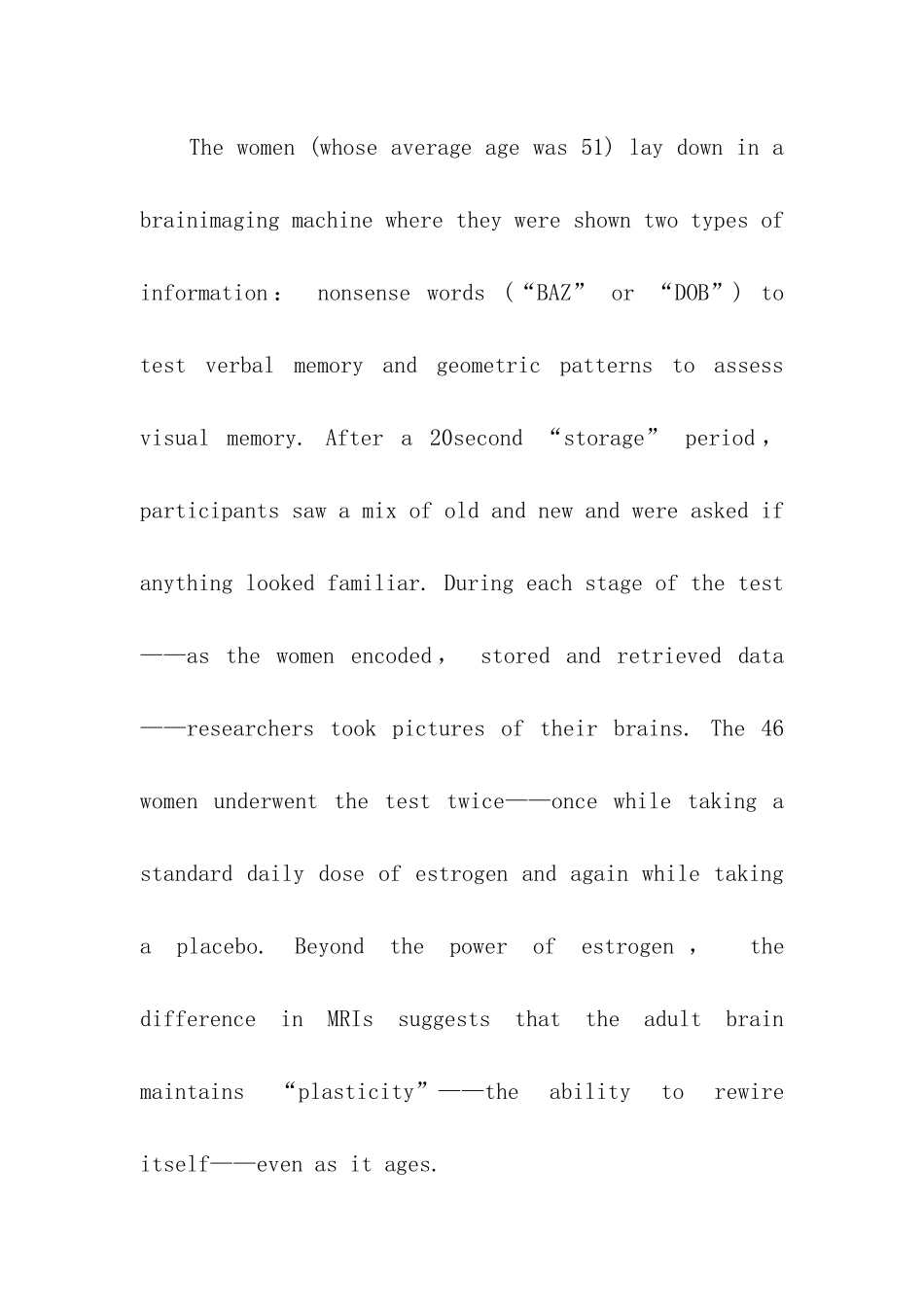考研英语阅读理解考前冲刺练习题及答案 You hop into your car, but, wait, where are the keys? You meet someone new , but her name is gone before the handshakes over. Those are failures of your shortterm , or “working , ” memory——the place you file information for immediate, everyday retrieval. It isnt perfect. But researchers are increasingly convinced that the hormone estrogen could play a key role in maintaining and perhaps even improving memory. Last week a team of Yale scientists provided dramatic new evidence that bolsters the theory. Using MRIs——detailed snapshots of the brain——researchers found that women taking estrogen show significantly more activity in brain areas associated with memory than women on a placebo. “This is very exciting , ” says Yales Dr. Sally Shaywitz. “It means that the brain circuitry for memory had altered.” After menopause , when estrogen levels plummet , some women become forgetful. Past research has demonstrated that those who take estrogen do better on memory tests than their nonmedicated peers do. The hormone may even reduce the risk of Alzheimers. The new study, published in last weeks Journal of the American Medical Association, is the first to visually compare the neurocircuitry of memory both on and off estrogen. The drug made a big difference to participant Bernadette Settelmeyer : “ All of a sudden I was remembering things.” The women (whose average age was 51) lay down in a brainimaging machine where they were shown two types of information : nonsense words (“BAZ” or “DOB”) to test verbal memory and geometric patterns to assess visual memory. After a 20second “storage” period , participants saw a mix of old and new and wer...


